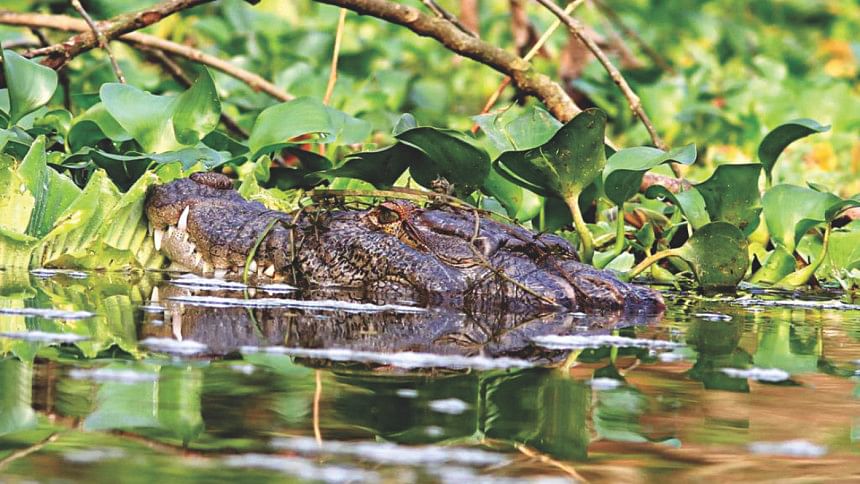We lost them 50 years ago!

After a wonderful bus ride through the hills and along a wide stream dotted with rocks and gravels, we reached the Jungle Safari Lodge at Chitwan National Park in Nepal well before the dusk when the sky was still slaty-blue. As we walked to the riverbank next to the elephant breeding centre, a pair of black francolins shrilled from the grassland; a yellow-breasted bunting flew off a tree stump and perched back on it. My trip mate then walked through the meadow, his shadow moving with him on the green ground in the golden sunlight.
The zeal to look for wild animals didn't provoke me much as we sat on the ground, watching the crimson sun vanishing into the tall grasses. The elephant safari didn't excite us much the next morning. However, the deciduous forest looked quite different when we mounted an elephant as it allowed us to look straight into the eyes of the birds flitting around the trees and down on the ground dwellers like the red jungle fowls. When we were by the riverbank, we walked through the short grassland dotted with shallow waterbodies and large Sal trees standing stubbornly, spreading enormous branches towards the top.
The low evening light glowed on the tender wave as we got on a 20-foot long and narrow wooden boat to sail across the Narayani River. The floating water hyacinths made soothing sounds as we cruised our way through them. Water birds flew about on both of our sides. Within a few minutes our boatman whispered and we spotted a dark-grey prehistoric creature just a few metres away from out boat! It was a marsh crocodile (not the one that we see in the Sundarbans: estuarine crocodile) displaying its sharp teeth.
The marsh crocodile was widely distributed throughout Bangladesh in freshwater wetlands and rivers. The species existed until the end of 1950s and became extinct due to the destruction of our wetlands and rivers, and hunting by professional crocodile hunters. It is unfortunate that Nepal, one of our neighbouring countries, has been successful in protecting this superb species whereas we lost them more than 50 years ago with many others also on the brink of extinction.
The writer is a Bangladesh-based Conservation Biologist, currently studying at the University of Cambridge, UK.

 For all latest news, follow The Daily Star's Google News channel.
For all latest news, follow The Daily Star's Google News channel. 



Comments